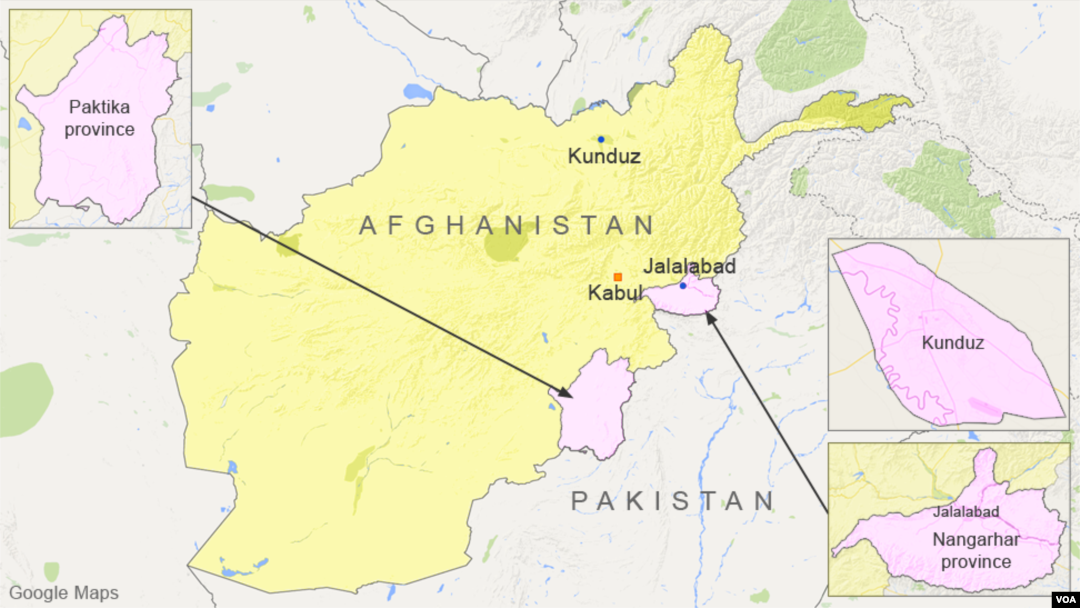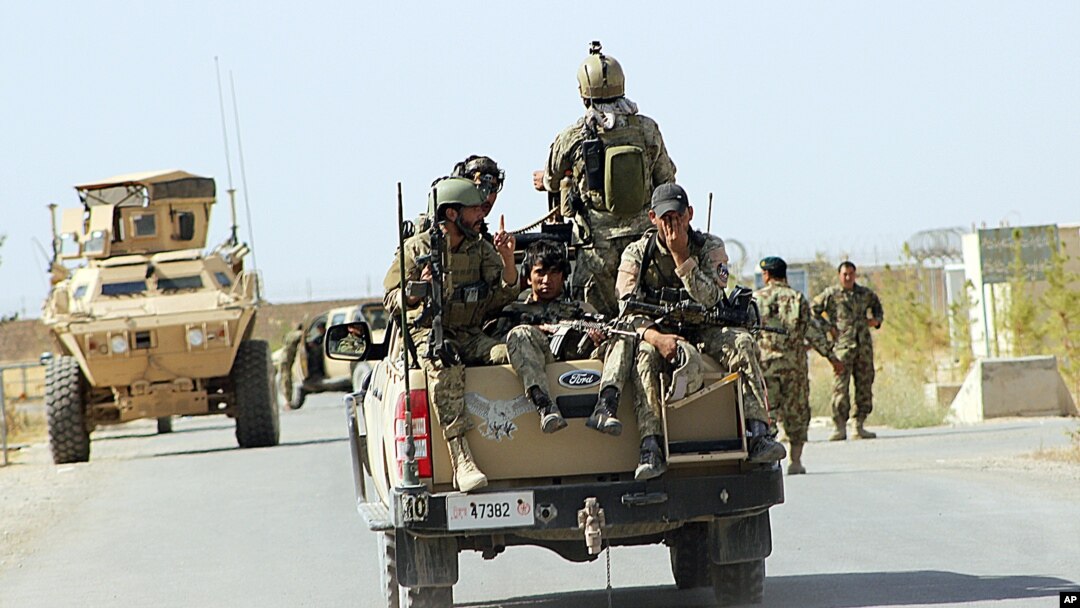The Taliban's takeover of the northern Afghan city Kunduz is a sign of deep problems in the government's security strategy that have been long in the making. Political and military decisions led to the Taliban's first takeover of a major urban area in Afghanistan since 2001.
A Western security advisor currently working in northern Afghanistan, Ted Callahan, spoke to VOA by phone to discuss the circumstances that led to the fall of Kunduz to the Taliban.
“It appears on the face of it that it has been a very sudden collapse although the seeds of this collapse had been sown over the past few months beginning especially in April when the Taliban launched their initial spring offensive in Kunduz, which essentially had the effect of collapsing a lot of the Afghan security structures in the province," he said.
"And as a result, the government was so much forced to rely on militia forces as a temporary expedient, but it also never really forced them to try to coherently reconstitute the official security forces. So, you just kind of staggered from crisis to crisis with these temporary bandage solutions, but there was no significant reform that could have addressed the underlying weaknesses of security in Kunduz."

Taliban insurgents have taken parts of the northern Afghan city of Kunduz, while the provinces of Nangarhar and Paktika suffered attacks from the Islamic State over the weekend.
'Balancing act'
Afghan officials have admitted that competition for power within the provincial administration played a role in facilitating the Taliban assault on Kunduz. The political conflict began from the day President Ghani appointed an ethnic Pashtun as governor of the province and allowed Chief Executive Abdullah to appoint the top police chief. Callahan says the so-called balancing act contributed to the security crisis in Kunduz.
“The ethnic tensions that have been present in Kunduz for a long time and are in some ways very much part of the current situation were never really addressed. And so typically what you had was a governor of one ethnicity and a chief of police of another often from outside of Kunduz and that was seen as a way of maintaining an ethnic balance. So, by not allowing one ethnic group to get their own people in it was seen as a way to just maintaining balance of power among the different groups," he said.
"But when you look at it in the longer term over say the past 10 years or so what it really was, was the recipe for continued dysfunction, maneuvering internally amongst different ethnic and political groups with the overall detriment of security in Kunduz."
'Bigger security challange'
Callahan says that even if Afghan forces with the help of NATO military support drive out the Taliban from Kunduz, the region will present even a bigger security challenge to the government in the coming days.
“The problem, is that the Taliban controls so much terrain around Kunduz that you are not going to be able to decisively defeat them in any way in Kunduz. You can drive them out, try to reconstitute some of the security structures that as I mentioned have been in decay since April, but the likelihood of the future Taliban attack is almost certain," he said.
"So you can drive them out, but you are not going to defeat them and odds are absent some sort of significant reforms which is hard to envision what that would look like right now. There is every likelihood that they will be back at the gates of Kunduz within weeks."
Kabul-based political analyst Haroun Mir says unemployment coupled with deteriorating security have prompted more Afghans to flee the country and the fall of Kunduz is likely to intensify the exodus, further shaking public confidence in the Ghani government.
“This is a good indicator that people have lost their hope in this government, and the majority of young Afghans and those who are relatively educated that are trying to flee the country, that shows that the people do not trust them [the government] and there is no hope for them,” said Mir.


